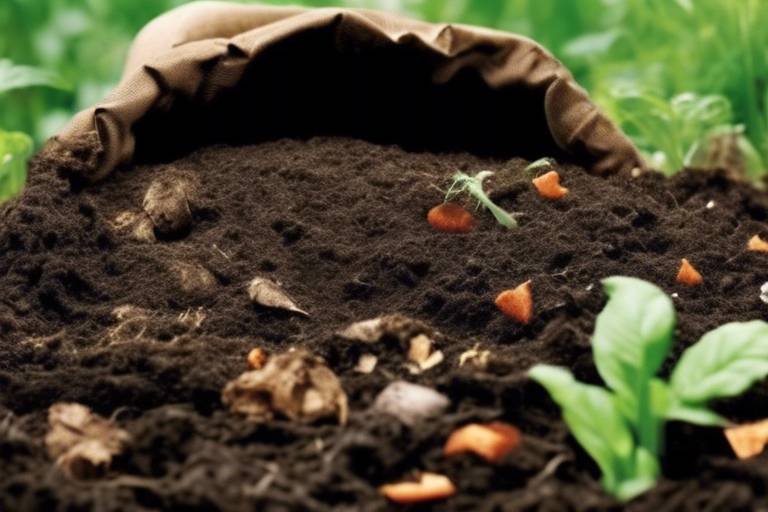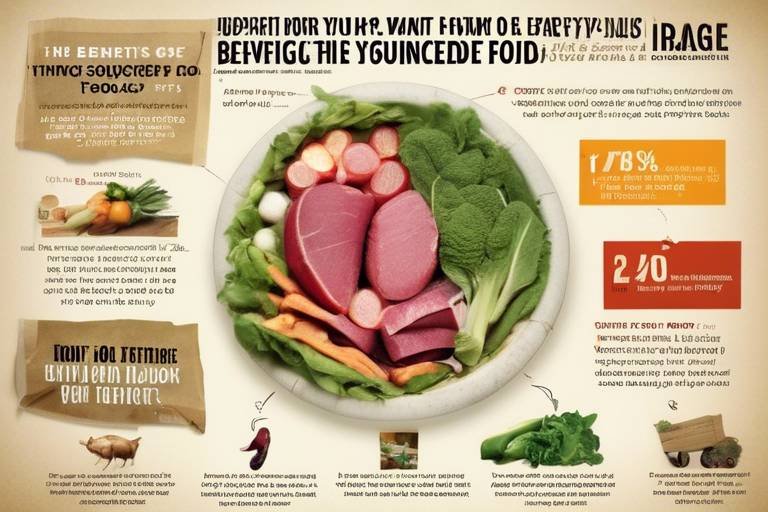3 Sustainable Alternatives to Plastic Bags
This article explores three eco-friendly alternatives to plastic bags, examining their benefits, environmental impact, and practical applications in daily life to promote sustainable living. As we become more aware of the environmental challenges posed by plastic waste, it’s essential to seek out alternatives that not only serve our daily needs but also help protect our planet. Let’s dive into some sustainable options that can easily replace conventional plastic bags, making our shopping habits more environmentally friendly.
Reusable cloth bags have emerged as a popular alternative to plastic bags, and for good reason. Made from a variety of materials such as cotton, jute, or recycled fabrics, these bags are designed to withstand repeated use, significantly reducing plastic waste. They come in various sizes and designs, making them versatile for shopping trips, gym sessions, or even as stylish totes for everyday errands. Imagine walking into your favorite store, proudly carrying a chic cloth bag that not only looks good but also tells the world you care about the environment. Plus, many of these bags can be easily washed, ensuring they remain clean and ready for your next adventure.
Biodegradable bags are another fantastic option, breaking down more quickly than traditional plastic bags. Often made from plant-based materials like cornstarch or potato starch, these bags offer a sustainable solution that minimizes landfill waste. When disposed of properly, biodegradable bags can decompose in a matter of months, rather than the centuries it takes for plastic to break down. This quick decomposition not only helps reduce pollution but also enriches the soil, making it a win-win situation. However, it's crucial to ensure they are disposed of in the right conditions to maximize their environmental benefits. So, next time you're at the store, consider opting for biodegradable bags to help lessen your environmental footprint.
Paper bags are a classic alternative that has stood the test of time. Made from renewable resources, they are often recyclable and compostable, making them a more sustainable choice compared to their plastic counterparts. When you think about it, using paper bags is like returning to our roots; they remind us of simpler times when packaging was more earth-friendly. Additionally, many companies are now committed to sustainable production practices, ensuring that the paper used for these bags is sourced responsibly. However, it’s important to note that while paper bags are a better alternative, they still require resources to produce, so using them wisely is key. Always remember to reuse and recycle them whenever possible!
When it comes to grocery shopping, those pesky plastic produce bags can often be the most challenging to avoid. Enter mesh produce bags! These lightweight and breathable bags are perfect for transporting fruits and vegetables without the need for plastic. Not only do they help keep your produce fresh, but they are also washable and reusable, promoting a zero-waste lifestyle. Imagine filling your reusable cloth bag with vibrant fruits and veggies, all neatly tucked away in your colorful mesh bags. It’s a simple change that makes a huge difference in reducing plastic waste, and they are often made from recycled materials, adding another layer of sustainability!
Compostable bags take sustainability a step further by breaking down in composting conditions. These bags are typically made from organic materials and are designed to turn into nutrient-rich compost, benefiting both the environment and composting processes. Using compostable bags for organic waste not only reduces landfill contributions but also supports a healthier ecosystem. Think of it as giving back to the earth while managing your waste responsibly. It’s a small change that can have a significant impact on waste management and sustainability.
Upcycled bags represent a creative and innovative way to reduce waste. Crafted from repurposed materials, these unique bags often have a story behind them, making them a fashionable choice for environmentally conscious consumers. By choosing upcycled bags, you’re not just reducing waste; you’re also promoting creativity and supporting artisans who are passionate about sustainability. Imagine carrying a bag made from old denim or recycled banners—each one a conversation starter and a testament to your commitment to the environment. Plus, they often come in one-of-a-kind designs, ensuring you stand out from the crowd!
If you’re feeling crafty, why not create your own bags? DIY alternatives made from old clothing or fabric scraps are not only sustainable but also a fun way to express your creativity. This practice encourages a circular economy by reducing the need for new materials and giving a second life to items that might otherwise end up in the landfill. The next time you’re about to toss that old t-shirt, think about how it could be transformed into a stylish tote bag. Not only will you be reducing waste, but you'll also have a personalized bag that reflects your unique style!
Many communities are stepping up to tackle the issue of plastic bag use by developing local solutions. Initiatives promoting reusable bags, hosting workshops on sustainable practices, and implementing bag bans or fees are all part of the movement towards a greener future. Supporting these local efforts can foster sustainable practices and help reduce your community's environmental impact. It’s a collective effort that requires participation from each of us. By engaging in local sustainability initiatives, you’re not just making a personal choice; you’re contributing to a larger movement that prioritizes the health of our planet.
Government regulations play a crucial role in reducing plastic bag usage. Policies that ban or tax plastic bags can encourage consumers to adopt more sustainable alternatives. These regulations not only raise awareness about the environmental impacts of plastic waste but also support conservation efforts. Imagine walking into a store where plastic bags are no longer available, and instead, you see a variety of eco-friendly options. It’s a shift in mindset that can lead to lasting change. By advocating for and supporting these regulations, we can help pave the way for a more sustainable future.
Q: Are reusable cloth bags really better for the environment?
A: Yes! Reusable cloth bags can significantly reduce plastic waste and are designed for multiple uses, making them a more sustainable choice.
Q: How long does it take for biodegradable bags to decompose?
A: Biodegradable bags can break down in a matter of months, depending on the conditions they are disposed of in.
Q: Can I recycle paper bags?
A: Yes! Most paper bags are recyclable and can be composted as well, provided they are clean and free of food residue.
Q: What are mesh produce bags made from?
A: Mesh produce bags are often made from recycled materials and are designed to be lightweight, breathable, and reusable.
Q: How can I make my own DIY bags?
A: You can use old clothing or fabric scraps to create your own bags. There are many tutorials available online to guide you through the process!

Reusable Cloth Bags
When it comes to making the switch from plastic bags, stand out as a champion of sustainability. These bags, made from a variety of materials such as cotton, jute, or recycled fabrics, not only help in reducing the overwhelming plastic waste that plagues our planet but also offer a stylish and functional alternative for everyday use. Imagine walking into your favorite grocery store, your vibrant cloth bag slung over your shoulder, making a statement about your commitment to the environment. It’s not just a bag; it’s a conversation starter!
The versatility of reusable cloth bags is truly remarkable. They come in numerous sizes and designs, catering to all your shopping needs. Whether you’re heading out for a quick grocery run or planning a day at the beach, there’s a cloth bag that fits the bill. Furthermore, they are incredibly durable, often lasting for years with proper care. This means fewer bags end up in landfills, contributing to a cleaner environment.
One of the most significant benefits of using reusable cloth bags is their environmental impact. According to various studies, a single reusable cloth bag can replace hundreds of plastic bags over its lifetime. This not only reduces the amount of plastic waste but also conserves resources used in the production of plastic bags. For instance, producing a cotton bag requires significantly less energy than producing multiple plastic bags. Here’s a quick comparison:
| Type of Bag | Average Lifespan | Environmental Impact |
|---|---|---|
| Plastic Bag | Single Use | Contributes to landfill and ocean pollution |
| Reusable Cloth Bag | Up to 5 years | Reduces plastic waste significantly |
Moreover, using reusable cloth bags can also save you money in the long run. Many stores offer discounts for customers who bring their own bags, which can add up over time. It's a win-win situation! You save money while saving the planet. Plus, let’s not forget the joy of personalizing your cloth bags. With endless designs and patterns available, you can express your personality and values through your choice of bag.
But wait, there’s more! Maintaining these bags is a breeze. Most cloth bags are machine washable, allowing you to keep them clean and fresh without much hassle. This ease of care ensures that you can use your bag repeatedly without worrying about hygiene or odors.
In conclusion, adopting reusable cloth bags is a simple yet impactful way to contribute to a more sustainable future. They are practical, stylish, and environmentally friendly, making them a perfect choice for anyone looking to reduce their plastic footprint. So, the next time you find yourself at the store, remember to grab your reusable cloth bag and take a step towards a greener planet!
- How do I clean my reusable cloth bags? Most cloth bags are machine washable. Just toss them in with your regular laundry, and they’ll come out fresh and clean!
- Can I use reusable cloth bags for all types of shopping? Absolutely! Reusable cloth bags are versatile and can be used for groceries, clothing, beach outings, and more.
- Are reusable cloth bags more expensive than plastic bags? While the initial cost may be higher, reusable cloth bags save you money in the long run due to their durability and the discounts offered by many retailers.

Biodegradable Bags
In today's world, where environmental concerns are at the forefront of our collective consciousness, have emerged as a promising solution to the plastic crisis. Unlike traditional plastic bags that can take hundreds of years to decompose, biodegradable bags are designed to break down more quickly, often within a few months to a few years, depending on the conditions they are exposed to. Made from plant-based materials such as cornstarch, potato starch, or other natural polymers, these bags offer a more sustainable alternative while still providing the convenience we’ve come to expect from plastic.
One of the most significant benefits of biodegradable bags is their potential to significantly reduce landfill waste. When disposed of properly, they can decompose and return to the earth, enriching the soil rather than contributing to the ever-growing mountains of plastic that pollute our environment. Imagine a world where your shopping bag doesn’t linger for centuries, but instead, nourishes the ground beneath your feet! This is the promise that biodegradable bags hold.
However, it’s essential to understand that not all biodegradable bags are created equal. Some bags are labeled as biodegradable but require specific industrial composting conditions to break down effectively. This means that if they end up in a regular landfill, they may still contribute to pollution. Therefore, it’s crucial to look for bags that are certified and have clear instructions on how to dispose of them properly. Here’s a quick breakdown of the different types of biodegradable bags:
| Type of Biodegradable Bag | Material | Decomposition Time | Disposal Method |
|---|---|---|---|
| Compostable Bags | PLA (Polylactic Acid) | 3-6 months in composting conditions | Industrial composting |
| Starch-Based Bags | Starch blends | 1-3 years | Home composting or landfill |
| Oxodegradable Bags | Conventional plastic with additives | 1-5 years | Landfill (not ideal) |
When considering biodegradable bags, it’s also vital to think about their practical applications. These bags can be used for a variety of purposes, including grocery shopping, waste disposal, and even as gift bags. Their versatility makes them an attractive option for consumers looking to reduce their environmental impact without sacrificing convenience. Plus, many biodegradable bags come in fun colors and designs, adding a touch of personality to your eco-friendly choices!
In conclusion, while biodegradable bags are not a perfect solution, they represent a step in the right direction towards a more sustainable future. By choosing biodegradable options, you are not only making a conscious choice for the environment but also encouraging manufacturers to innovate and improve their products. As we continue to seek alternatives to plastic, embracing biodegradable bags can be a simple yet effective way to contribute to a healthier planet.
- What are biodegradable bags made from? Biodegradable bags are typically made from plant-based materials like cornstarch or potato starch.
- How long does it take for biodegradable bags to decompose? The decomposition time varies, but many can break down within a few months to a few years under the right conditions.
- Can I compost biodegradable bags at home? It depends on the type of bag. Some are suitable for home composting, while others require industrial composting facilities.
- Are biodegradable bags more expensive than plastic bags? Generally, biodegradable bags can be more expensive, but the environmental benefits often outweigh the cost.
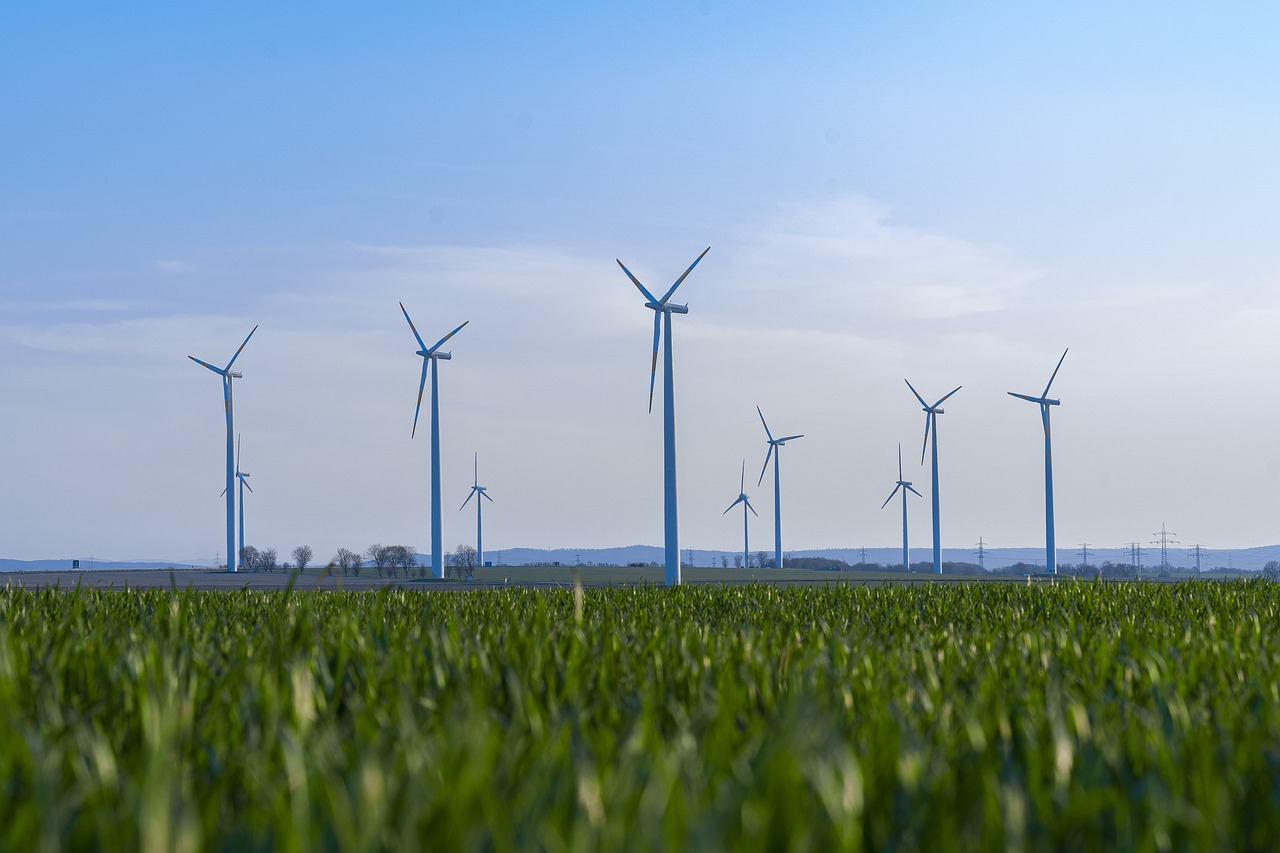
Paper Bags
have long been a staple in the world of eco-friendly alternatives to plastic. Made from renewable resources, these bags are not only recyclable but also compostable, making them a fantastic choice for those looking to reduce their environmental footprint. When you think about it, opting for paper bags is like choosing to plant a tree instead of cutting one down; it’s a decision that supports sustainability rather than detracts from it.
One of the most significant advantages of paper bags is their biodegradability. Unlike plastic bags, which can linger in landfills for hundreds of years, paper bags break down naturally over time. In fact, they can decompose in as little as a few months under the right conditions. This rapid decomposition helps to lessen the burden on our planet's waste management systems. Imagine a world where waste disappears as quickly as it accumulates—this is the vision that paper bags help to realize.
Furthermore, the production of paper bags can be done sustainably. Many manufacturers source their materials from responsibly managed forests, ensuring that their practices do not contribute to deforestation. This means that every time you choose a paper bag, you are supporting a cycle of renewal rather than depletion. It’s akin to choosing a meal made from locally sourced ingredients; you’re not just nourishing yourself but also supporting the ecosystem around you.
To illustrate the benefits of paper bags, consider the following table that compares them with plastic bags:
| Feature | Paper Bags | Plastic Bags |
|---|---|---|
| Biodegradability | Yes, decomposes in months | No, can take hundreds of years |
| Recyclability | Yes, widely recyclable | Limited, often not recycled |
| Production Source | Renewable resources | Fossil fuels |
| Impact on Wildlife | Lower risk | Higher risk of harm |
In addition to their environmental benefits, paper bags offer a certain charm that plastic simply cannot match. With their rustic texture and the ability to print eye-catching designs, they can turn a simple shopping trip into a stylish outing. Imagine walking through a farmer's market with a beautifully designed paper bag, showcasing your commitment to the environment while also making a fashion statement. It's a win-win situation!
Moreover, using paper bags encourages a shift in consumer behavior. When people switch to paper, they often become more mindful of their overall consumption. It’s like flipping a light switch; once you realize the impact of your choices, you start to see everything in a new light. This consciousness can lead to a greater commitment to sustainability, prompting individuals to seek out other eco-friendly products and practices.
In conclusion, paper bags are not just a substitute for plastic; they represent a movement towards a more sustainable future. By choosing paper, you are making a conscious decision to support renewable resources, reduce waste, and promote a healthier planet. So the next time you’re out shopping, consider reaching for a paper bag instead of a plastic one. It’s a small change that can lead to significant impacts—one bag at a time.
- Are paper bags more expensive than plastic bags? Generally, yes, but the environmental benefits often outweigh the cost difference.
- Can I reuse paper bags? Absolutely! Paper bags can be reused multiple times for various purposes.
- What happens to paper bags if they get wet? While they can lose strength when wet, many paper bags are treated to resist moisture.
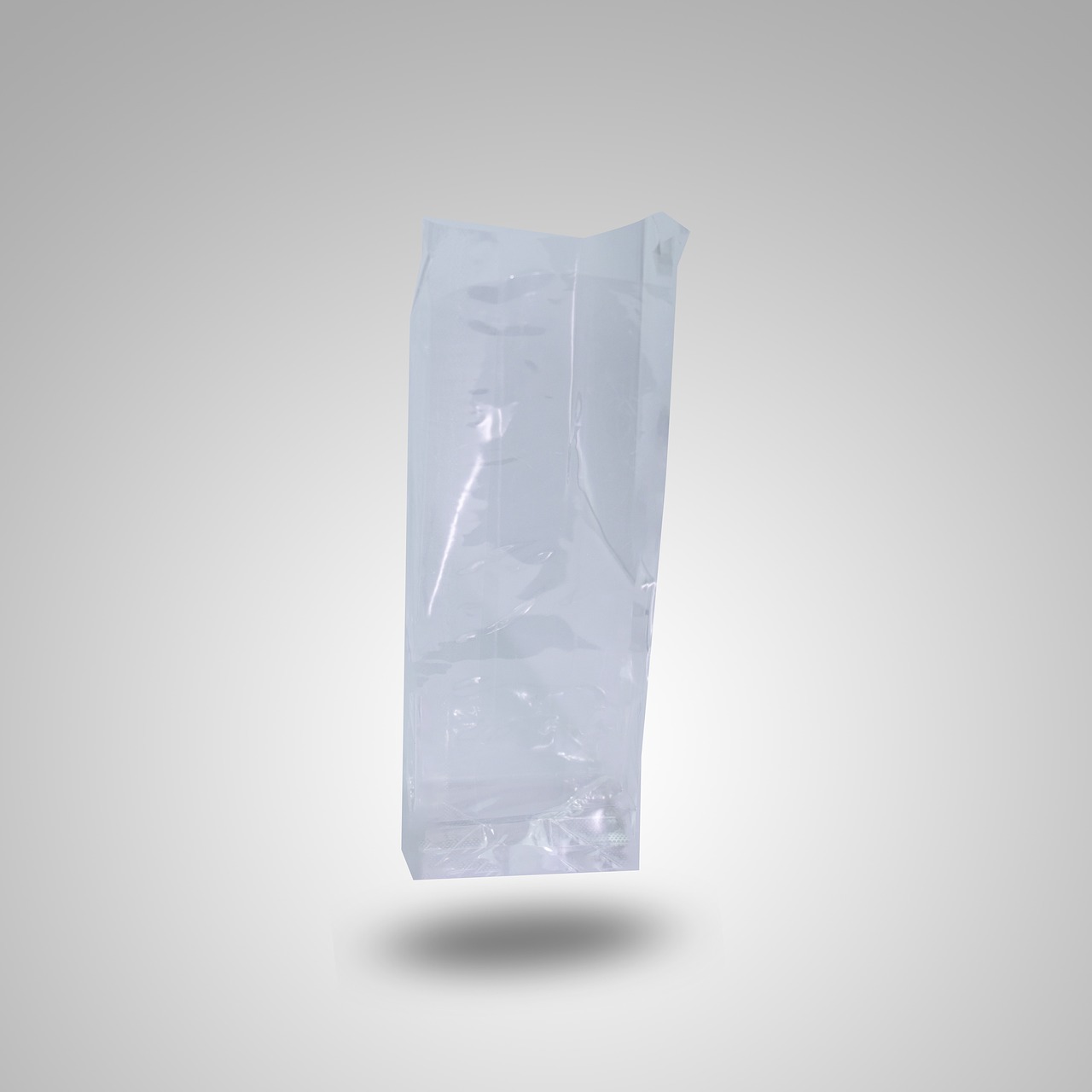
Mesh Produce Bags
Mesh produce bags are a fantastic solution for anyone looking to reduce their reliance on plastic while shopping for fruits and vegetables. These bags, often made from lightweight and durable materials, allow for excellent air circulation, which is crucial for keeping your produce fresh. Imagine walking through the grocery store, feeling good about your choices, and knowing that you're not contributing to the plastic problem. It's a small change, but it can lead to significant environmental benefits.
One of the best things about mesh produce bags is their versatility. They come in various sizes, making them perfect for everything from small berries to larger items like cabbage or melons. Plus, they are incredibly easy to clean—just toss them in the washing machine after a trip to the market, and they’re ready to go for your next shopping spree. This convenience makes them a practical option for busy lifestyles while promoting a zero-waste lifestyle.
Using mesh produce bags not only helps reduce plastic waste but also encourages you to buy in bulk. When you shop with these bags, you can fill them with loose produce, which often costs less than pre-packaged items. This can lead to savings in your grocery bill while also allowing you to choose the exact quantity of fruits and vegetables you need. It's a win-win situation!
Moreover, mesh produce bags are often made from recycled or sustainable materials, adding another layer of eco-friendliness to your shopping routine. When you choose to use these bags, you're not just making a personal choice; you're contributing to a larger movement towards sustainability and environmental responsibility.
In addition to their practical benefits, mesh produce bags also promote a sense of community. Many local artisans create these bags, often using traditional methods and sustainable practices. By purchasing these bags, you support local economies and encourage the growth of sustainable products. It’s like carrying a little piece of eco-consciousness with you every time you shop!
In summary, mesh produce bags are more than just a practical alternative to plastic; they symbolize a shift towards a more sustainable lifestyle. They combine functionality with environmental awareness, making them an essential item for anyone committed to reducing their plastic footprint. So next time you're at the grocery store, consider swapping out those plastic bags for a stylish mesh alternative. Your produce—and the planet—will thank you!
- Are mesh produce bags machine washable? Yes, most mesh produce bags can be easily washed in a washing machine.
- Can I use mesh produce bags for items other than fruits and vegetables? Absolutely! They can also be used for grains, nuts, and even small laundry items.
- Do mesh produce bags come in different sizes? Yes, they are available in various sizes to accommodate different types of produce.
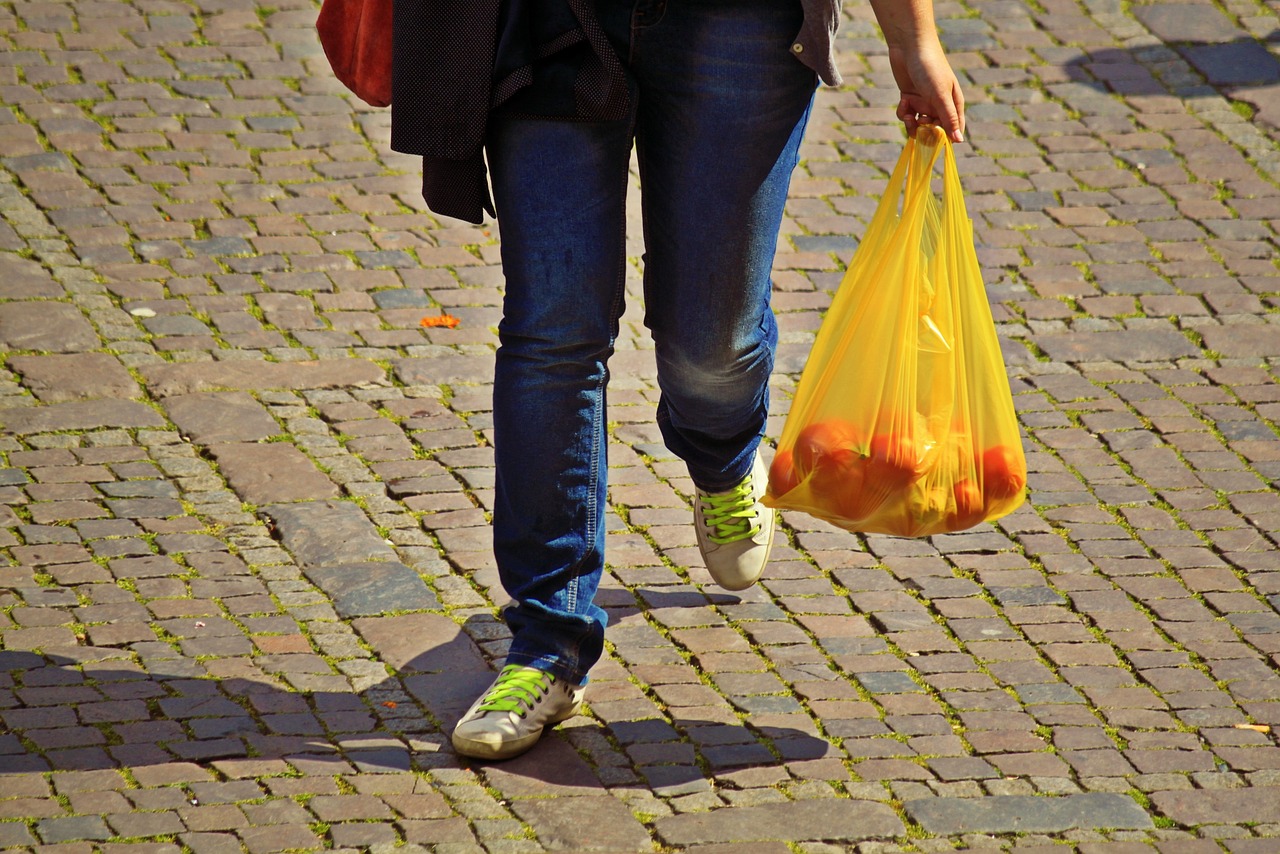
Compostable Bags
Compostable bags are an innovative solution in the fight against plastic pollution. Unlike traditional plastic bags, which can take hundreds of years to decompose, compostable bags are designed to break down in composting conditions, resulting in a much smaller environmental footprint. These bags are typically made from natural materials such as cornstarch, potato starch, or other plant-based substances, which means they can be integrated back into the earth, enriching the soil instead of polluting it.
One of the key benefits of using compostable bags is their ability to reduce landfill waste. When disposed of properly in a composting facility, they can decompose within a matter of months, turning into nutrient-rich compost that can be used to nourish plants. This is a stark contrast to plastic bags, which often end up in landfills, contributing to the growing problem of waste accumulation. Imagine a world where the bags you use today can help grow the food you eat tomorrow—that's the beauty of compostable bags!
However, it’s essential to note that not all compostable bags are created equal. To truly benefit from their eco-friendly properties, it's crucial to ensure that they are certified compostable. Look for certifications like ASTM D6400 or EN 13432, which indicate that the bags meet specific standards for compostability. This ensures that when you toss them into your compost bin, they will break down as intended, rather than becoming another piece of waste in the environment.
In terms of practical applications, compostable bags are versatile. They can be used for grocery shopping, carrying takeout food, or even as trash bags for organic waste. Many municipalities are starting to adopt composting programs, making it easier for residents to dispose of their organic waste responsibly. By using compostable bags, you not only make a conscious choice for the environment but also support local composting initiatives that aim to reduce landfill waste.
As you consider making the switch to compostable bags, think about how this small change can lead to significant environmental benefits. By choosing compostable options, you are taking a step towards a sustainable future. It’s not just about reducing plastic; it’s about creating a cycle of sustainability that enriches the earth rather than depleting it. So, the next time you're at the store or packing up your leftovers, remember that every choice counts.
- What are compostable bags made of? Compostable bags are primarily made from natural materials such as cornstarch, potato starch, or other plant-based ingredients.
- How long does it take for compostable bags to decompose? Compostable bags can decompose within a few months in a composting facility, depending on the conditions.
- Can I put compostable bags in my regular trash? It’s best to dispose of compostable bags in a composting bin or facility to ensure they break down properly.
- Are compostable bags more expensive than plastic bags? Initially, compostable bags may be more costly, but the environmental benefits often outweigh the price difference.
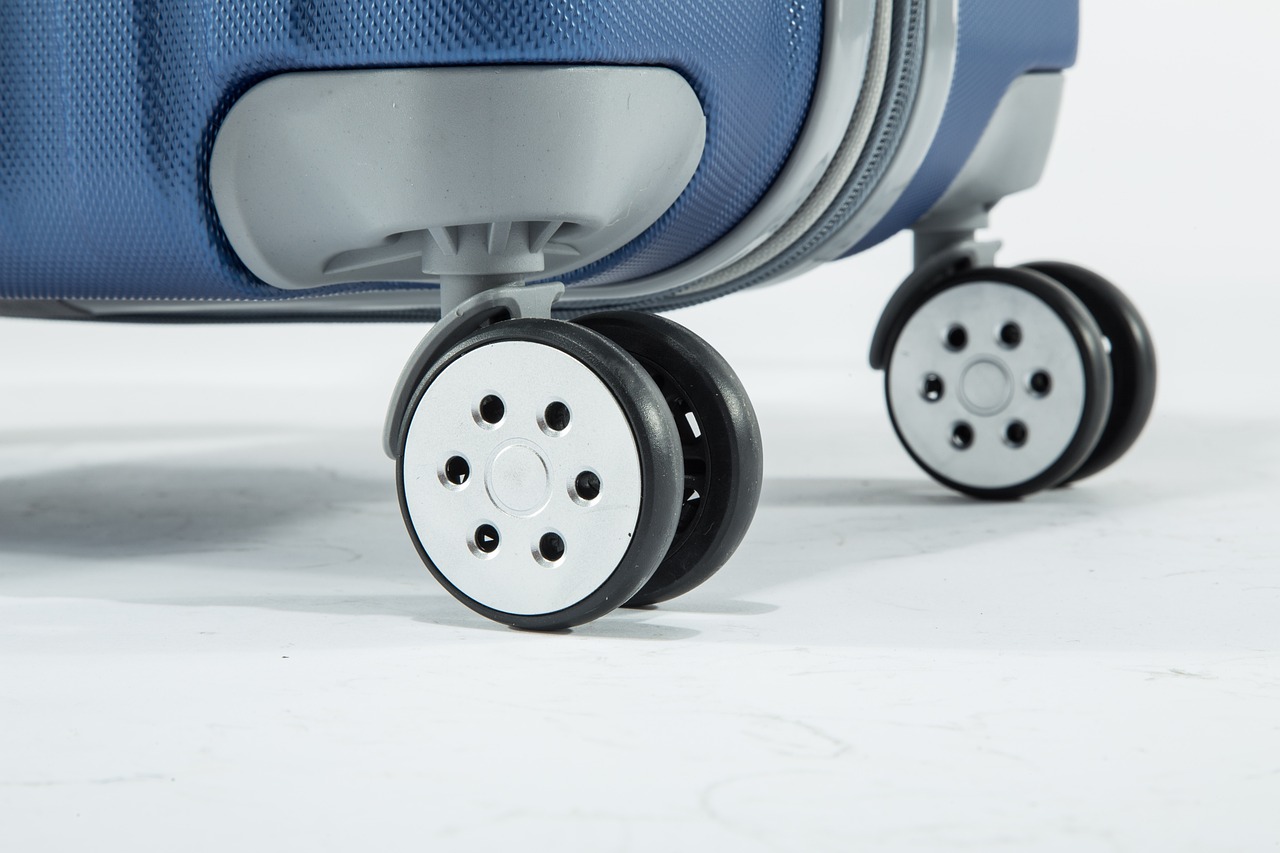
Upcycled Bags
Upcycled bags are not just a trend; they represent a revolutionary shift in how we perceive waste and creativity. Imagine turning something that would typically end up in a landfill into a stylish, functional accessory! Upcycling transforms discarded materials into new products, and when it comes to bags, the possibilities are endless. These bags can be crafted from a variety of materials, including old clothing, fabric scraps, or even discarded plastic. The beauty of upcycled bags lies in their uniqueness; no two bags are alike, each telling its own story. This not only promotes sustainability but also allows individuals to express their personal style.
One of the most appealing aspects of upcycled bags is their environmental impact. By choosing to use upcycled materials, we significantly reduce the demand for new resources, which in turn lowers energy consumption and decreases pollution. For instance, creating a bag from old jeans saves the energy that would have been used to produce new fabric. This process not only diverts waste from landfills but also encourages a more sustainable lifestyle.
Moreover, upcycled bags can be incredibly durable and practical. Many artisans and designers put a lot of thought into the functionality of these bags, ensuring they are not just visually appealing but also serve a purpose in daily life. For example, a bag made from an old tarp can be waterproof and perfect for outdoor adventures, while a backpack created from repurposed leather can add a touch of elegance to everyday errands.
As we embrace upcycled bags, we also foster a sense of community and creativity. Many local artisans and crafters are getting involved in this movement, offering workshops and classes to teach others how to create their own upcycled products. This not only empowers individuals to take action but also strengthens community ties. By supporting local creators, we can help cultivate a culture of sustainability and innovation.
In conclusion, upcycled bags are a fantastic alternative to traditional bags, marrying functionality with creativity and sustainability. They challenge us to rethink how we view waste and inspire us to make environmentally conscious choices. So, the next time you're in need of a new bag, consider opting for an upcycled option—your wardrobe and the planet will thank you!
- What are upcycled bags made from? Upcycled bags can be made from a variety of materials, including old clothing, fabric scraps, and discarded plastic items.
- Are upcycled bags durable? Yes! Many upcycled bags are designed to be both stylish and functional, often made from durable materials that can withstand daily use.
- How can I make my own upcycled bag? You can create your own upcycled bag by sewing together old clothing or fabric scraps. There are many online tutorials available to guide you through the process.
- Where can I buy upcycled bags? Upcycled bags can often be found at local craft fairs, artisan markets, or online through platforms that support sustainable products.
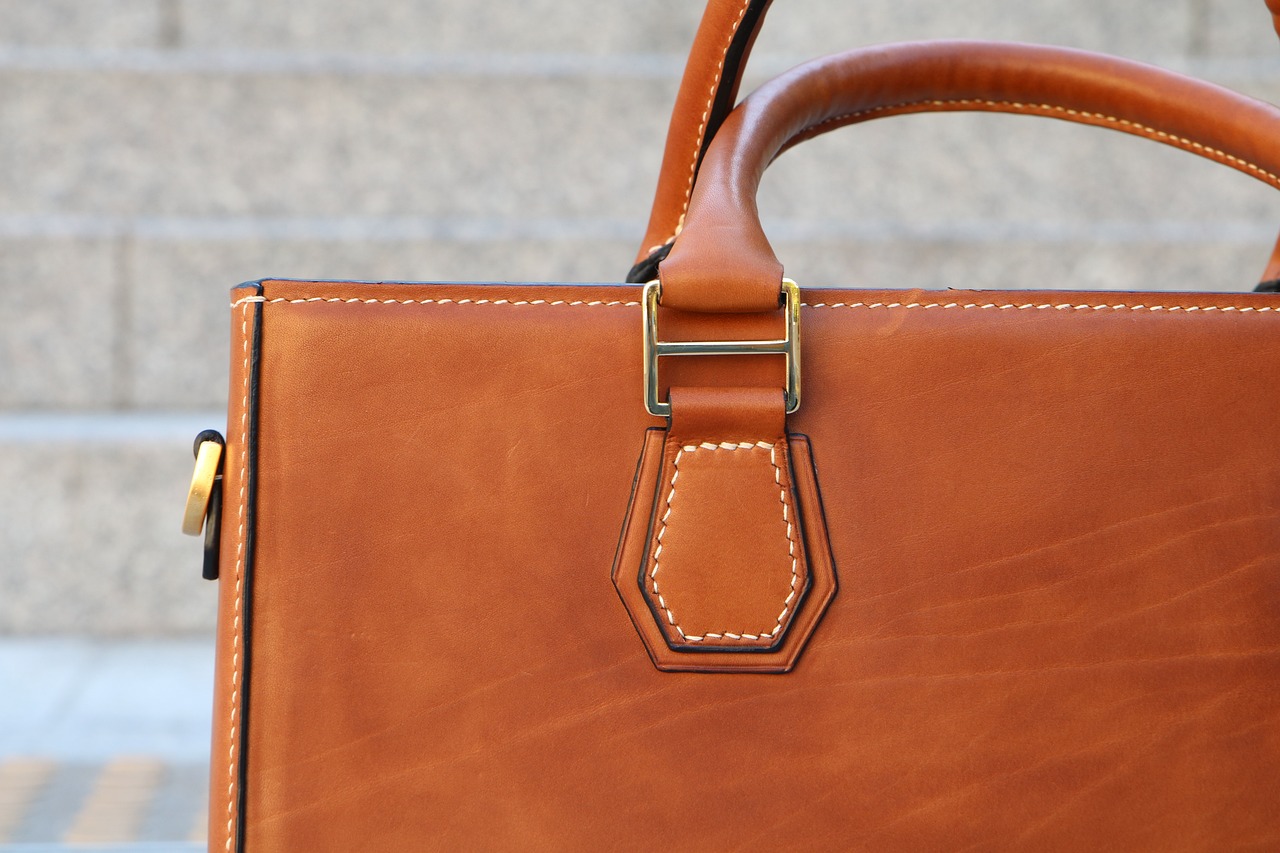
DIY Alternatives
Creating your own bags from old clothing or fabric scraps is not only a sustainable practice but also a fantastic way to unleash your creativity. Imagine transforming that old T-shirt you never wear into a stylish tote bag that you can flaunt at the grocery store! DIY alternatives to plastic bags allow you to reduce waste while crafting something unique and personal. Plus, it’s a fun project that can be done alone or with family and friends, turning a simple task into a memorable experience.
One of the best things about DIY bags is that they can be made from a variety of materials you likely already have at home. Old jeans, curtains, or even bed sheets can be repurposed into functional and fashionable bags. The process is simple, and you don’t need to be a sewing expert to get started. With a little imagination, you can create:
- Tote Bags: Perfect for shopping or carrying books.
- Produce Bags: Ideal for fruits and vegetables, allowing you to skip the plastic ones at the store.
- Gift Bags: A charming way to wrap presents, adding a personal touch.
Not only do these DIY alternatives help in reducing plastic waste, but they also promote a circular economy by giving new life to materials that would otherwise end up in landfills. You can even involve your kids in the process, teaching them the importance of sustainability and creativity. Imagine their delight in making their own bags and understanding the impact of their choices on the environment!
To get started, you’ll need some basic supplies:
| Supplies | Description |
|---|---|
| Old Clothing | Any fabric can work; T-shirts, jeans, or even sweaters. |
| Scissors | For cutting the fabric to the desired size. |
| Sewing Kit | Needles, thread, or a sewing machine if you prefer. |
| Iron | To smooth out the fabric and make it easier to work with. |
Once you've gathered your materials, the next step is to get creative! There are countless tutorials available online that can guide you through the process, whether you want a simple no-sew option or a more complex design. The best part? Each bag you create will be a reflection of your personality and style, making it a truly one-of-a-kind item.
So why not give it a try? Not only will you be contributing to a more sustainable world, but you'll also have a blast in the process. Plus, you’ll have an awesome story to tell every time someone admires your handmade bag. It’s a win-win situation!
Q: What materials can I use for DIY bags?
A: You can use old clothing, fabric scraps, bed sheets, curtains, and even towels. Almost any fabric can be repurposed!
Q: Do I need to know how to sew?
A: Not necessarily! There are plenty of no-sew tutorials available, and you can also use fabric glue or simply tie the fabric together for a quick solution.
Q: Can I wash my DIY bags?
A: Yes, most DIY bags made from fabric can be washed. Just check the type of fabric and care instructions to ensure they stay in good condition.
Q: How can I decorate my DIY bags?
A: You can use fabric paint, patches, or even embroidery to personalize your bags further. The sky's the limit!

Local Solutions
In the quest to combat plastic pollution, many communities are stepping up with innovative local solutions that promote the use of sustainable alternatives to plastic bags. These grassroots initiatives not only encourage residents to adopt eco-friendly practices but also foster a sense of community and shared responsibility towards the environment. Imagine walking through your local market and seeing vibrant banners promoting reusable bags, or joining a neighborhood event where everyone gathers to create their own cloth bags. This sense of community involvement can be incredibly powerful!
One effective approach communities are taking is organizing educational workshops aimed at raising awareness about the environmental impacts of plastic bags. These workshops often demonstrate the benefits of switching to reusable options, showcasing various types of sustainable bags available in the market. Participants can learn about the materials used, the manufacturing process, and how making small changes in their shopping habits can lead to significant environmental benefits.
Furthermore, some local governments are implementing incentive programs to encourage the use of reusable bags. For instance, grocery stores might offer discounts to customers who bring their own bags, making it more appealing to ditch the plastic. In addition, local businesses are increasingly partnering with eco-conscious brands to provide stylish, reusable bags that not only reduce waste but also promote a fashionable lifestyle. This collaboration not only supports local economies but also sends a clear message that sustainability can be trendy!
Another fascinating trend is the establishment of community bag exchanges, where residents can donate and pick up reusable bags. This system not only reduces waste but also fosters a spirit of sharing and cooperation among neighbors. Imagine walking into a local café and finding a basket full of reusable bags, available for anyone to take! It’s a simple yet effective way to ensure that everyone has access to sustainable options without the burden of purchasing new bags.
In addition to these initiatives, many communities are working on policy changes that support sustainable practices. This can include regulations that limit the distribution of plastic bags in stores or even outright bans on single-use plastics. Such policies create a framework that encourages residents to embrace more sustainable alternatives. When people see their local government taking action, it can inspire them to change their own habits as well.
As we witness these local solutions gaining momentum, it's essential to remember that every small step counts. By supporting community initiatives, participating in workshops, and advocating for sustainable policies, we can collectively make a significant impact on reducing plastic waste. After all, it’s not just about switching to reusable bags; it’s about creating a culture of sustainability that can inspire future generations.
- What are some examples of local solutions to plastic bag use?
Communities are organizing workshops, incentive programs, and bag exchanges to promote reusable bags. - How can I get involved in local initiatives?
Look for community events, volunteer opportunities, and local groups focused on sustainability in your area. - Are reusable bags really better for the environment?
Yes! Reusable bags significantly reduce the amount of plastic waste generated and can be made from eco-friendly materials. - What role does government play in reducing plastic bag use?
Governments can implement policies that limit or ban plastic bags, encouraging consumers to adopt sustainable alternatives.
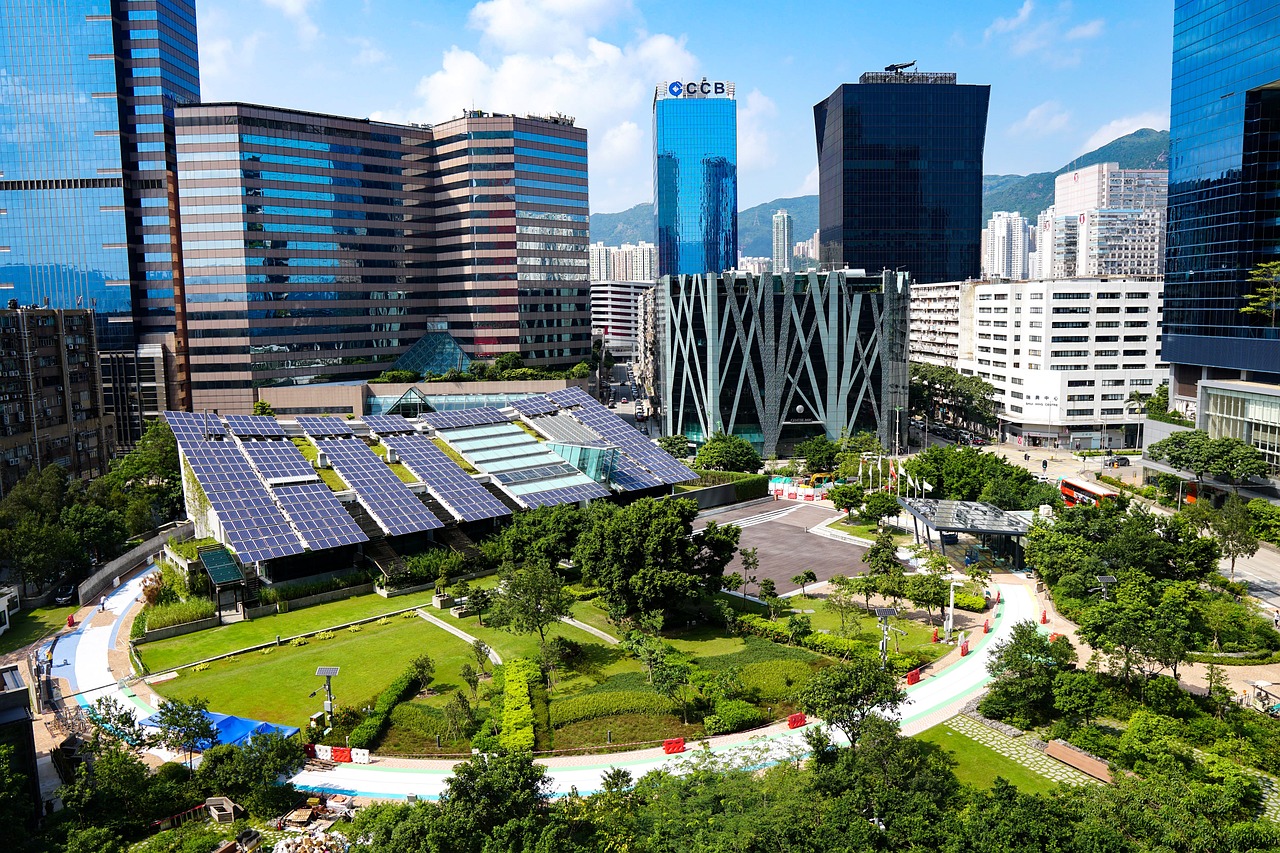
Government Regulations
Government regulations are pivotal in the global effort to reduce plastic bag usage and promote sustainable alternatives. Many countries and local governments have recognized the detrimental impact of plastic bags on the environment, leading to a wave of legislative changes aimed at curbing their use. These regulations not only encourage consumers to switch to eco-friendly options but also foster a culture of sustainability within communities.
For instance, some regions have implemented outright bans on single-use plastic bags, while others have introduced a tax or fee for their use. This approach effectively nudges consumers towards adopting reusable bags and other sustainable alternatives. But why is this important? Every year, millions of plastic bags end up in landfills, oceans, and other natural habitats, causing severe harm to wildlife and ecosystems. By making plastic bags less convenient or more costly, regulations can significantly reduce their prevalence in our everyday lives.
In addition to bans and taxes, governments are also working to promote awareness about the environmental impacts of plastic waste. Campaigns aimed at educating the public about the benefits of using reusable bags and other alternatives can lead to more informed consumer choices. When people understand the consequences of their actions, they are more likely to make changes in their behavior.
To give you a clearer picture, let’s take a look at some examples of regulations from around the world:
| Country/Region | Type of Regulation | Details |
|---|---|---|
| California, USA | Ban | Statewide ban on single-use plastic bags, with a focus on encouraging reusable bags. |
| European Union | Directive | Member states required to reduce plastic bag consumption by 80% by 2025. |
| Bangladesh | Ban | First country to ban plastic bags in 2002, leading to a significant reduction in plastic waste. |
These examples illustrate the diverse approaches taken by different regions, showcasing how legislation can lead to positive environmental outcomes. As consumers, we have the power to influence change as well. By supporting policies that promote sustainable practices, we not only contribute to a healthier planet but also encourage businesses to innovate and offer more eco-friendly products.
In conclusion, government regulations are essential in the fight against plastic pollution. They serve as a catalyst for change, inspiring individuals and communities to embrace sustainable practices. As more regions adopt such measures, we can hope for a future where plastic bags are a thing of the past, replaced by innovative, environmentally friendly alternatives. Together, through awareness and action, we can create a cleaner, greener world.
Frequently Asked Questions
- What are reusable cloth bags made from?
Reusable cloth bags can be made from a variety of materials including cotton, jute, and polyester. Each material offers different benefits, such as durability and ease of cleaning, making them a versatile option for shopping and daily use.
- How do biodegradable bags work?
Biodegradable bags are designed to break down more quickly than traditional plastic bags. They are often made from plant-based materials, which allows them to decompose naturally in the environment, reducing landfill waste and minimizing environmental impact.
- Are paper bags really better for the environment?
Yes, paper bags are generally considered to be a better option than plastic. They are made from renewable resources and are recyclable and compostable. However, the environmental impact can vary based on production methods, so it's important to choose sustainably sourced paper bags.
- What makes mesh produce bags a good choice?
Mesh produce bags are great because they allow for air circulation, keeping fruits and vegetables fresh. They are washable and reusable, which helps reduce plastic waste when shopping for groceries. Plus, they’re lightweight and easy to carry!
- Can compostable bags be used for regular trash?
Compostable bags are specifically designed for organic waste and should ideally be used in composting conditions. Using them for regular trash may not yield the same benefits, as they need the right environment to break down properly.
- What are upcycled bags and why are they unique?
Upcycled bags are created from repurposed materials, such as old clothing or other fabric scraps. They not only help reduce waste but also often come with a unique story or design, making them a fashionable and eco-friendly choice.
- How can I make my own DIY bags?
Making your own DIY bags can be a fun and creative project! You can use old clothing, fabric scraps, or even old linens. Just cut the fabric to your desired size, sew or tie the edges, and you’ve got yourself a unique, eco-friendly bag!
- What local initiatives can I support to reduce plastic bag use?
Many communities are launching initiatives to promote the use of reusable bags, such as local bag exchanges or educational campaigns. Supporting these efforts can help foster sustainable practices and encourage your neighbors to join in reducing plastic waste.
- How do government regulations impact plastic bag usage?
Government regulations, such as bans or taxes on plastic bags, play a crucial role in encouraging consumers to adopt more sustainable alternatives. These policies can lead to a significant reduction in plastic waste and promote environmental conservation efforts.




